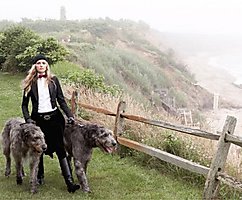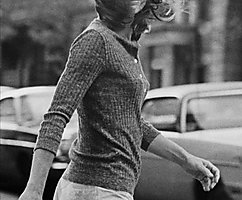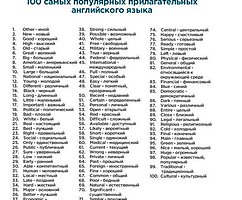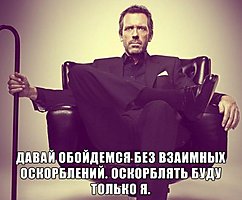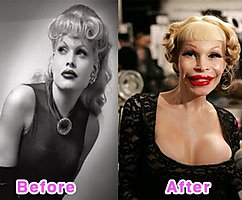Ecovillages - lives outside the city
 Bashny.Net
Bashny.Net
According to the surveys of sociologists, more urban residents expressed a desire to live in nature. But to say - is one thing, but to do - is quite another. And not just a change in the comfortable apartment as a comfortable country cottage, and begin to live in the settlement among like-minded people.
The emergence of eco-villages in the United States and Europe belongs to the 60th years of XX century. Over time, they became so numerous that in 1995 a special organization was created - "A worldwide network of eco-villages" (Global Ecovillage Network, abbreviated GEN)
. In Russia the first ecovillage originated in the early '90s, when even the highly trained specialists were suddenly out of work, and in the 2000s, following the publication of books by Vladimir Megre "Anastasia", formed a movement to establish a settlement in the form of ancestral homes. < br>
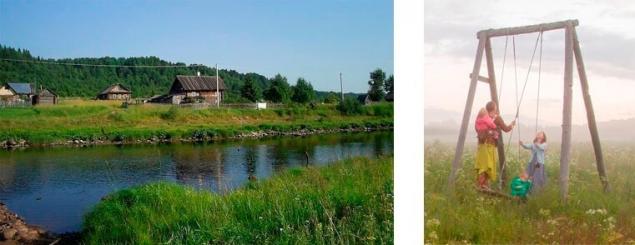
Experience shows that this path is not easy, and it is possible to effectively pass is not all: now successfully live in Russia and develop only 420 settlements, despite the fact that the attempts to create them were thousands
. "Build your house and build a whole village, where you can live and work surrounded by friends and associates - are two big differences. To create a settlement required the concerted efforts of many people, requires a certain intelligence and tenacity, the ability to negotiate with each other, you need to understand the laws by which human societies develop, "writes Dmitry Alder, backed by nearly 10 years of life in the settlement of ancestral homes" Springs "in the Chelyabinsk region.
Disputes and quarrels between the community members often arise from unexpected and stupid reasons - ranging from an inability to unanimous adoption of the Constitution and ending disputes about the rules of behavior of dogs in the territory of ecovillage. The most amazing thing is that on the same "rake" from time to time come for the people of different villages on different continents whose cultures, seemingly quite different from each other!
At the same time there is a successful experience both in our country and abroad. What is more important - to defend its exclusivity, repeated a thousand mistakes, but still find the solution yourself or quickly and efficiently achieve the desired? In the end, everyone chooses to answer these questions. If you still want to learn how to avoid mistakes when you create ecovillage, it is the subject of the book Dayany Christian (Dayana Kristian) «Creating a Life Together: Practical Tools to Grow Ecovillages and Intentional Communities» ( «We create future together"). In 2012, Dmitry Alder with fellow team translated the book into Russian, and it became a practical guide to the many supporters of alternative settlements.
"When in 2009 I first opened the book Dayany Christian - writes in the introduction Dmitry - I was amazed. I had the feeling that the author was just sitting in our kitchen, in some "Springs" settlement, and verbatim heard our talk about their everyday concerns. And the author is not limited to the description of these problems are well known to us - he wrote very specific things that you can do with them »
!. Just a month and a half Dayan Christian first came to Russia. She conducted workshops in Moscow and St. Petersburg, told why only 10% successful ecovillages and gave advice on how to avoid failure.
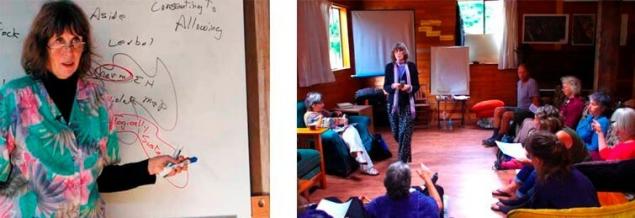
Over the past 20 years, Diana has visited more than 120 communities around the world to find out what makes them a good start and develop harmoniously. She spent hundreds of seminars in the world, it is a certified teacher of the "Course of creating ecovillages» (Ecovillage Design Education, EDE) and, of course, herself a resident of ecovillage "Earthly Paradise» ( «Earthheaven») in North Carolina, USA.
The emergence of eco-villages in the United States and Europe belongs to the 60th years of XX century. Over time, they became so numerous that in 1995 a special organization was created - "A worldwide network of eco-villages" (Global Ecovillage Network, abbreviated GEN)
. In Russia the first ecovillage originated in the early '90s, when even the highly trained specialists were suddenly out of work, and in the 2000s, following the publication of books by Vladimir Megre "Anastasia", formed a movement to establish a settlement in the form of ancestral homes. < br>

Experience shows that this path is not easy, and it is possible to effectively pass is not all: now successfully live in Russia and develop only 420 settlements, despite the fact that the attempts to create them were thousands
. "Build your house and build a whole village, where you can live and work surrounded by friends and associates - are two big differences. To create a settlement required the concerted efforts of many people, requires a certain intelligence and tenacity, the ability to negotiate with each other, you need to understand the laws by which human societies develop, "writes Dmitry Alder, backed by nearly 10 years of life in the settlement of ancestral homes" Springs "in the Chelyabinsk region.
Disputes and quarrels between the community members often arise from unexpected and stupid reasons - ranging from an inability to unanimous adoption of the Constitution and ending disputes about the rules of behavior of dogs in the territory of ecovillage. The most amazing thing is that on the same "rake" from time to time come for the people of different villages on different continents whose cultures, seemingly quite different from each other!
At the same time there is a successful experience both in our country and abroad. What is more important - to defend its exclusivity, repeated a thousand mistakes, but still find the solution yourself or quickly and efficiently achieve the desired? In the end, everyone chooses to answer these questions. If you still want to learn how to avoid mistakes when you create ecovillage, it is the subject of the book Dayany Christian (Dayana Kristian) «Creating a Life Together: Practical Tools to Grow Ecovillages and Intentional Communities» ( «We create future together"). In 2012, Dmitry Alder with fellow team translated the book into Russian, and it became a practical guide to the many supporters of alternative settlements.
"When in 2009 I first opened the book Dayany Christian - writes in the introduction Dmitry - I was amazed. I had the feeling that the author was just sitting in our kitchen, in some "Springs" settlement, and verbatim heard our talk about their everyday concerns. And the author is not limited to the description of these problems are well known to us - he wrote very specific things that you can do with them »
!. Just a month and a half Dayan Christian first came to Russia. She conducted workshops in Moscow and St. Petersburg, told why only 10% successful ecovillages and gave advice on how to avoid failure.

Over the past 20 years, Diana has visited more than 120 communities around the world to find out what makes them a good start and develop harmoniously. She spent hundreds of seminars in the world, it is a certified teacher of the "Course of creating ecovillages» (Ecovillage Design Education, EDE) and, of course, herself a resident of ecovillage "Earthly Paradise» ( «Earthheaven») in North Carolina, USA.
Tags
Personal development
psychology
women
men
relationships
life
happiness
harmony
love
children
money
wealth
success
See also
The mind is without thoughts in two states
Should a man to provide a woman?
Family psychology: what do not know your parents
What man has a woman
HOW TO LOVE A man or a wise woman 12 RULES
The more dangerous for women training if the leading man
Three things that man is vital to get a woman
What spare women after 40 years
Fate and life scenario
Alexander Field: I'm always amazed at how women believe men



